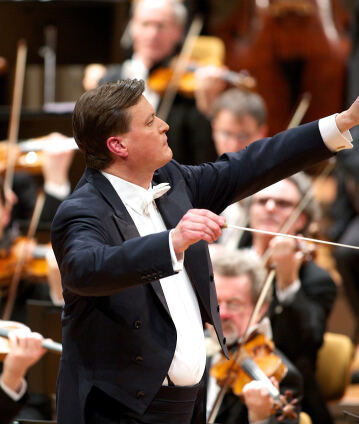A Verdi evening with Christian Thielemann

Christian Thielemann devotes this concert entirely to the music of Giuseppe Verdi. Subtle beauty is to be discovered in three ballets: the understated passion in the Ballo della Regina from Don Carlos, the dynamic Otello ballet, and the dances from Macbeth that capture all the dark edginess of the opera. The main work of the concert is the moving Quattro pezzi sacri, created by Verdi at the end of a long life as a composer as a kind of musical and religious conclusion.
“You fortunate people who are still the sons of Bach,” wrote Giuseppe Verdi to Hans von Bülow on 14 April 1892. “And we? We too, the sons of Palestrina, used to have a grand tradition... our own!” The Quattro pezzi sacri are testimony to Verdi’s intense engagement with the polyphony of the old Italian masters, on the basis of which he ultimately found a very “modern” musical language.
The four compositions, originally written independently of each other, were assembled as a cycle by Arrigo Boito, Verdi’s loyal collaborator on Otello and Falstaff: an Ave Maria for mixed choir, and the Laudi alla Vergine for unaccompanied four-part female choir. In the other two pieces, the choir is accompanied by a full orchestra, while in the Te Deum, with its massive blocks of sound, a double choir and a short, ethereal soprano solo are also required. In all four works, the composer succeeded in refining the reflection of the meaning of the text in the harmonies to new levels – an aspect Christian Thielemann very much pays attention to.
In sharp contrast to the sacred choral works that consciously diverge from the musical conventions of their time, works by Verdi the opera composer are also included in the programme: among others, the spirited ballet music Ballo della Regina from the opera Don Carlos, premiered in Paris in 1867, which Verdi had composed as an interlude in the 3rd act in accordance with French practice.
© 2012 Berlin Phil Media GmbH
Related interviews
Artists
Our recommendations
- Yannick Nézet-Séguin conducts Brahms’s “Ein deutsches Requiem”
- Kirill Petrenko conducts Scriabin, Stravinsky and Stephan
- A Finnish evening with Mikko Franck
- Sir Simon Rattle conducts Mahler’s Symphony No. 2
- Simon Rattle conducts Beethoven’s Symphony No. 9
- Simon Rattle conducts Mahler’s Second Symphony